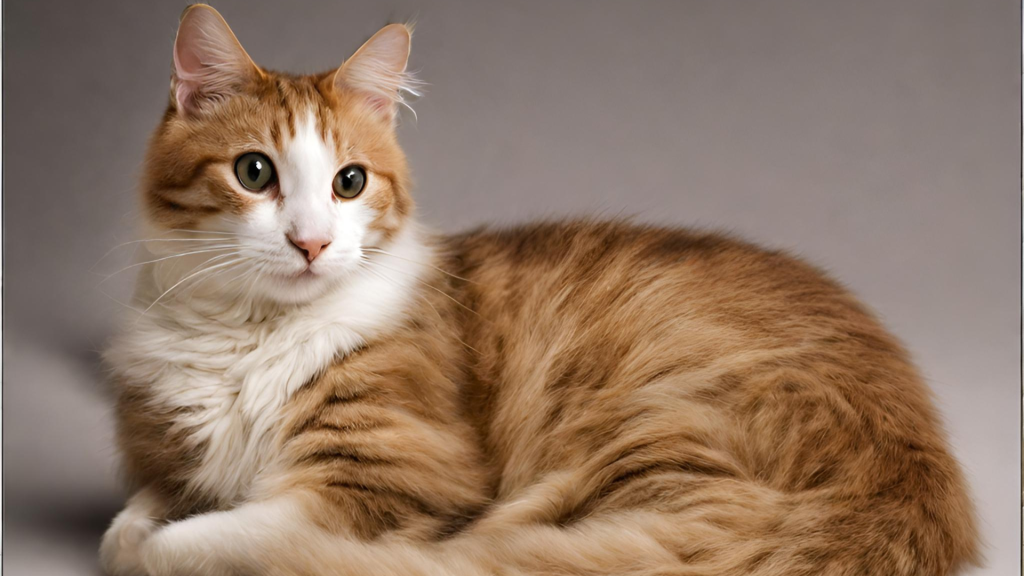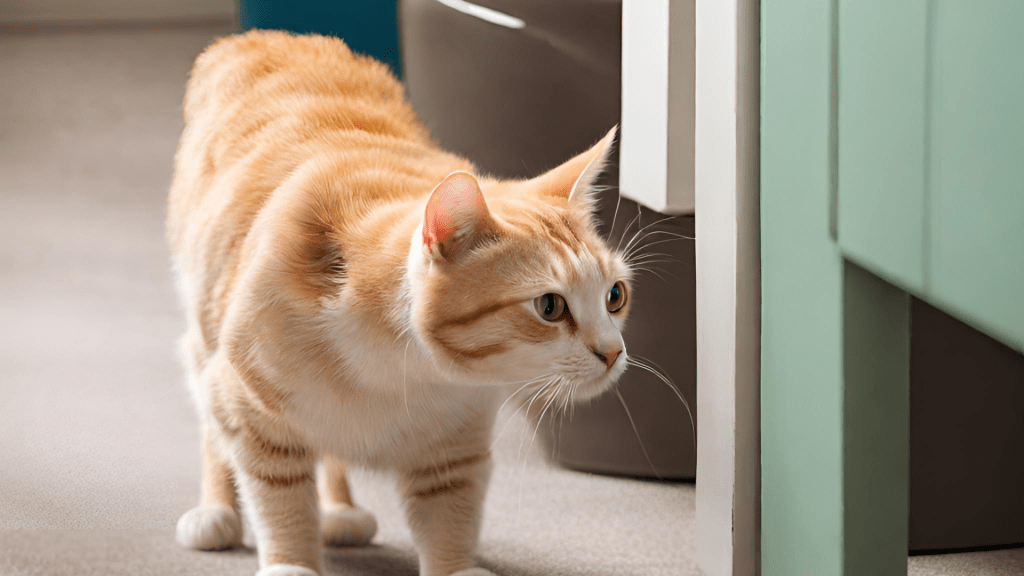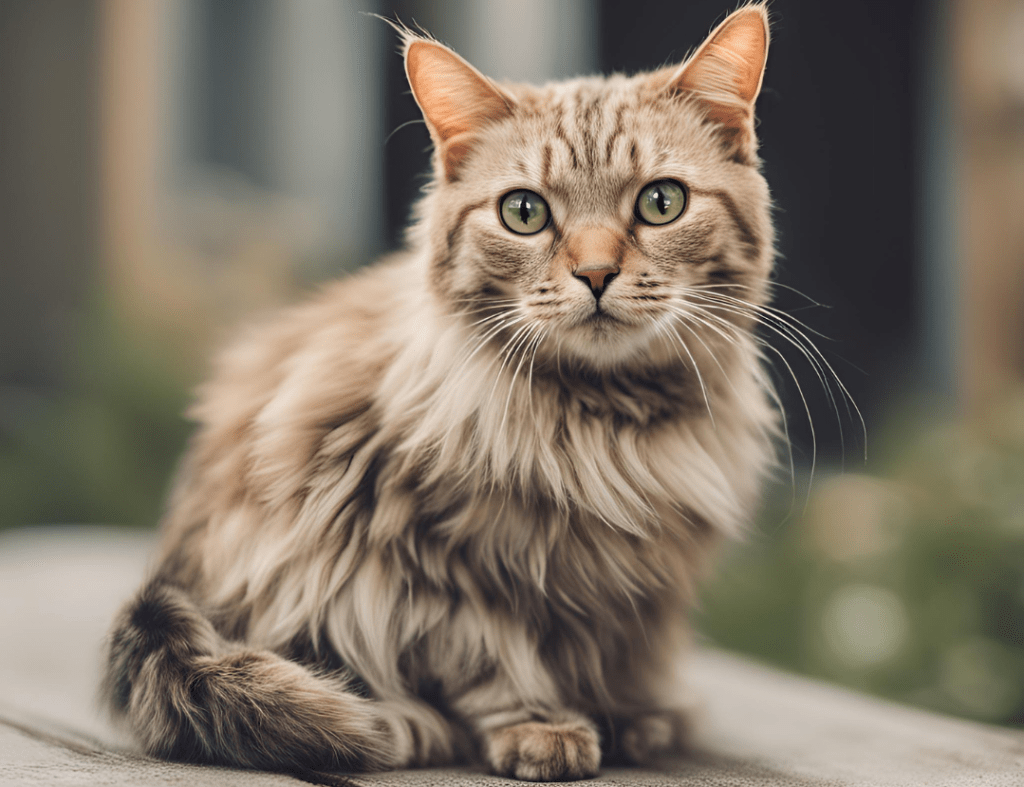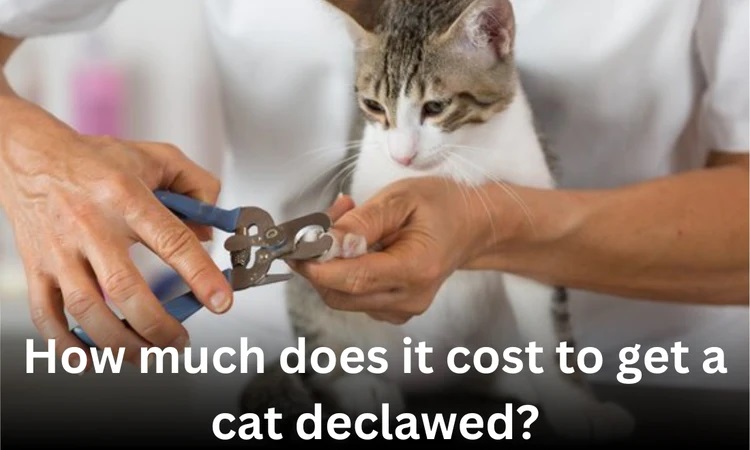Cats are enigmatic creatures, often exhibiting behaviours that amuse and puzzle their owners. One such behaviour is when a cat bites gently while purring. This seemingly contradictory action raises questions among many cat owners. Is it a sign of affection, aggression, or something else entirely? In this article, we will explore the various reasons behind this intriguing feline behaviour.
Understanding Cat Communication
Cats have a rich repertoire of communication methods, including vocalizations, body language, and physical gestures. Purring and biting, while appearing contradictory, are essential elements of this communication system.
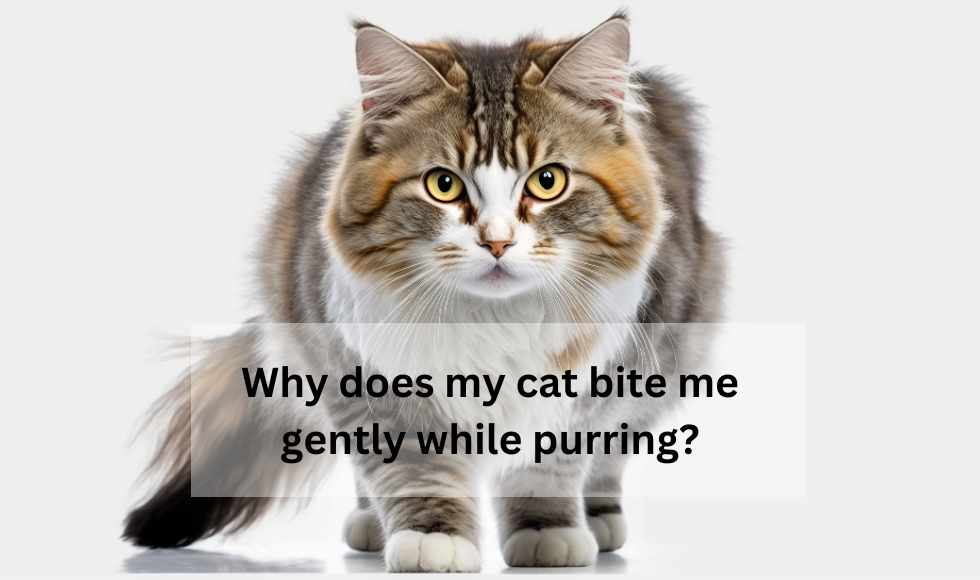
Purring: A Multifaceted Signal
Purring is generally associated with a content and happy cat. Kittens purr when nursing and adult cats often purr when they are comfortable, relaxed, or feeling affectionate. However, purring can also occur when a cat is in pain or distressed, serving as a self-soothing mechanism.
Biting: Context is Key
Biting can range from playful nips to more aggressive bites, and understanding the context is crucial. Gentle biting during purring is typically not a sign of aggression. Instead, it may be related to other underlying factors.
Reasons Why Cats Bite Gently While Purring
1. Affection and Love Bites
One of the most common reasons a cat might bite gently while purring is to express affection. These “love bites” are usually gentle and don’t break the skin. They can be compared to the way kittens play with their littermates, using their mouths to explore and interact. When your cat nips you lightly, it’s a way of saying, “I love you.”
2. Overstimulation
Cats can be sensitive to petting, and what starts as an enjoyable experience can quickly become overwhelming. This phenomenon, known as petting-induced aggression or overstimulation, occurs when a cat has had enough physical contact. The cat might still be purring because it is content. However, the gentle bite serves as a signal to stop or reduce the petting.
3. Attention-Seeking Behavior
Sometimes, a cat might bite gently to get your attention. If you’re preoccupied, you might not give your cat the attention it desires. It might use this tactic to engage with you. This behaviour is particularly common in cats that are accustomed to being the center of attention.
4. Playfulness
Cats, especially younger ones, are naturally playful and may use their mouths during play. A gentle bite can be part of this playful interaction. While purring, a cat might be in a state of contentment. It may also be playful, leading to gentle nipping as part of its play behaviour.
5. Marking Territory
Cats have scent glands in their mouths, and by biting gently, they might be marking you with their scent. This behaviour is a way for the cat to claim you as part of its territory. It also shows a sense of ownership and bonding.
6. Grooming Behavior
Cats groom each other as a social activity and form of bonding. When a cat gently nibbles on you while purring, it may be mimicking this grooming behavior. The cat might be treating you as part of its family. This is a sign of trust and affection.
How to Respond to Gentle Biting
Understanding why your cat bites gently while purring is essential to responding appropriately. Here are some tips on how to handle this behaviour:
1. Stay Calm
Reacting calmly and gently when your cat bites you is crucial. Sudden movements or loud reactions can startle your cat and may escalate the situation.
2. Observe and Learn
Pay attention to your cat’s body language and other signals leading up to the bite. Understanding the context and triggers can help you prevent overstimulation and adjust your interactions suitably.
3. Set Boundaries
If the biting becomes too frequent or intense, gently but firmly set boundaries. You can redirect your cat’s attention with toys or take a break from petting when you notice signs of overstimulation.
4. Offer Mental and Physical Stimulation
Ensure your cat has plenty of toys, scratching posts, and play opportunities. A well-stimulated cat is less likely to seek attention through gentle biting.
5. Positive Reinforcement
Reward your cat with treats and affection when it engages in positive behaviours. Positive reinforcement can help shape your cat’s behaviour and reduce unwanted biting.
Conclusion
When your cat bites you gently while purring, it is generally a sign of affection, playfulness, or a way to communicate their needs. Understanding the context and reasons behind this behaviour can help you respond appropriately and strengthen your bond with your feline friend. Remember to observe your cat’s body language, set boundaries when necessary, and provide plenty of mental and physical stimulation to ensure a happy and healthy relationship. With patience and understanding, you can decode your cat’s signals and enjoy a harmonious companionship.

